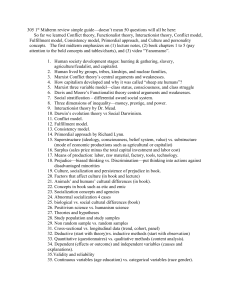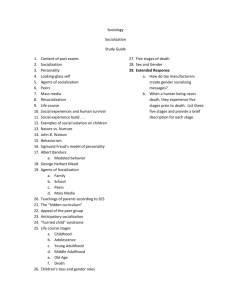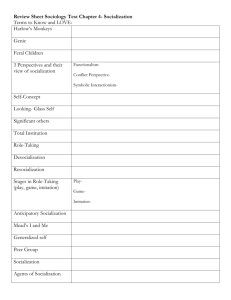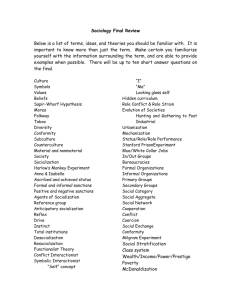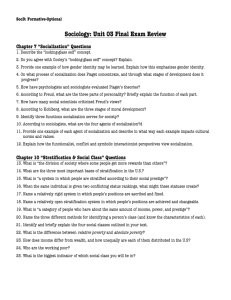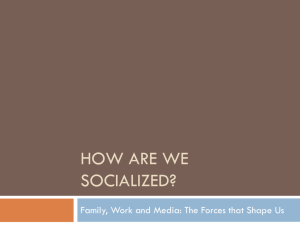Honors Sociology Final Exam
advertisement
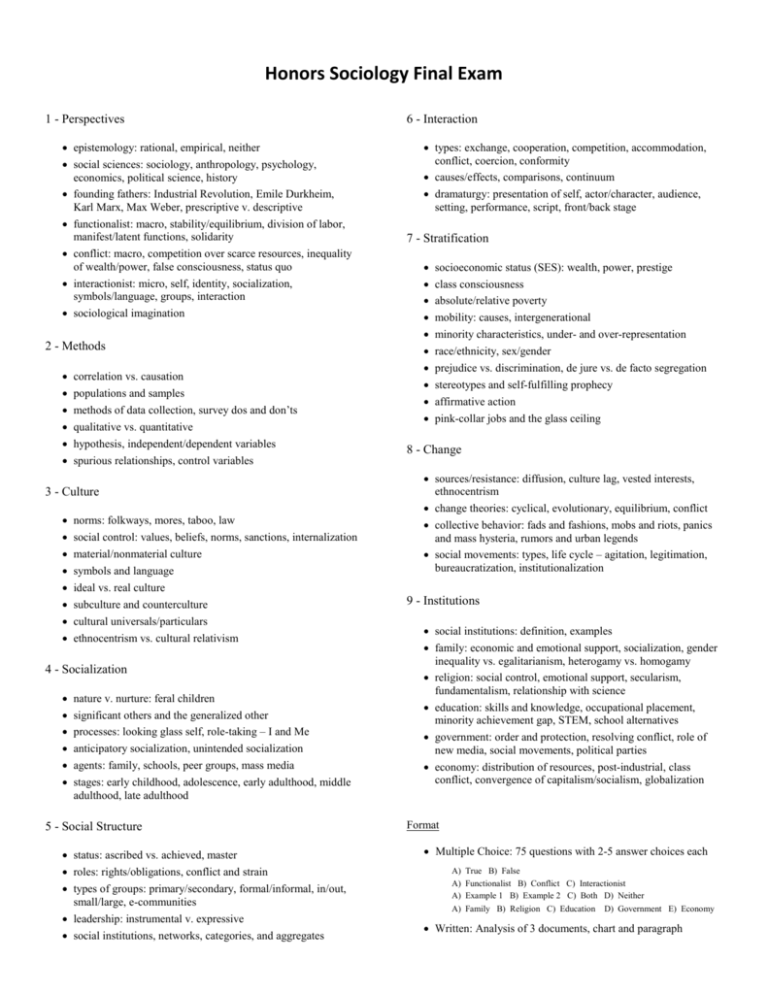
Honors Sociology Final Exam 1 - Perspectives epistemology: rational, empirical, neither social sciences: sociology, anthropology, psychology, economics, political science, history founding fathers: Industrial Revolution, Emile Durkheim, Karl Marx, Max Weber, prescriptive v. descriptive functionalist: macro, stability/equilibrium, division of labor, manifest/latent functions, solidarity conflict: macro, competition over scarce resources, inequality of wealth/power, false consciousness, status quo interactionist: micro, self, identity, socialization, symbols/language, groups, interaction sociological imagination 2 - Methods correlation vs. causation populations and samples methods of data collection, survey dos and don’ts qualitative vs. quantitative hypothesis, independent/dependent variables spurious relationships, control variables 3 - Culture norms: folkways, mores, taboo, law social control: values, beliefs, norms, sanctions, internalization material/nonmaterial culture symbols and language ideal vs. real culture subculture and counterculture cultural universals/particulars ethnocentrism vs. cultural relativism 4 - Socialization nature v. nurture: feral children significant others and the generalized other processes: looking glass self, role-taking – I and Me anticipatory socialization, unintended socialization agents: family, schools, peer groups, mass media stages: early childhood, adolescence, early adulthood, middle adulthood, late adulthood 5 - Social Structure status: ascribed vs. achieved, master roles: rights/obligations, conflict and strain types of groups: primary/secondary, formal/informal, in/out, small/large, e-communities leadership: instrumental v. expressive social institutions, networks, categories, and aggregates 6 - Interaction types: exchange, cooperation, competition, accommodation, conflict, coercion, conformity causes/effects, comparisons, continuum dramaturgy: presentation of self, actor/character, audience, setting, performance, script, front/back stage 7 - Stratification socioeconomic status (SES): wealth, power, prestige class consciousness absolute/relative poverty mobility: causes, intergenerational minority characteristics, under- and over-representation race/ethnicity, sex/gender prejudice vs. discrimination, de jure vs. de facto segregation stereotypes and self-fulfilling prophecy affirmative action pink-collar jobs and the glass ceiling 8 - Change sources/resistance: diffusion, culture lag, vested interests, ethnocentrism change theories: cyclical, evolutionary, equilibrium, conflict collective behavior: fads and fashions, mobs and riots, panics and mass hysteria, rumors and urban legends social movements: types, life cycle – agitation, legitimation, bureaucratization, institutionalization 9 - Institutions social institutions: definition, examples family: economic and emotional support, socialization, gender inequality vs. egalitarianism, heterogamy vs. homogamy religion: social control, emotional support, secularism, fundamentalism, relationship with science education: skills and knowledge, occupational placement, minority achievement gap, STEM, school alternatives government: order and protection, resolving conflict, role of new media, social movements, political parties economy: distribution of resources, post-industrial, class conflict, convergence of capitalism/socialism, globalization Format Multiple Choice: 75 questions with 2-5 answer choices each A) A) A) A) True B) False Functionalist B) Conflict C) Interactionist Example 1 B) Example 2 C) Both D) Neither Family B) Religion C) Education D) Government E) Economy Written: Analysis of 3 documents, chart and paragraph

